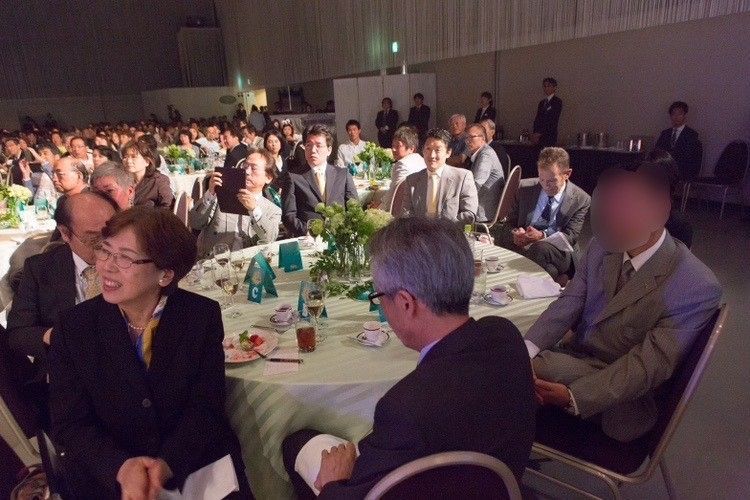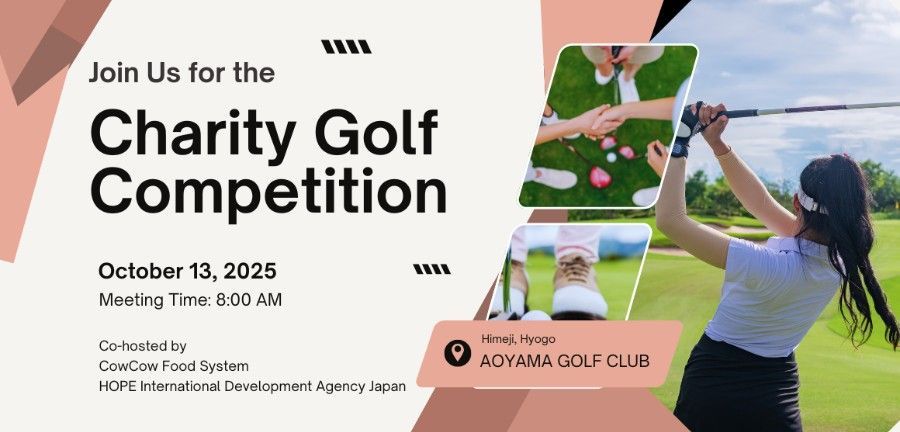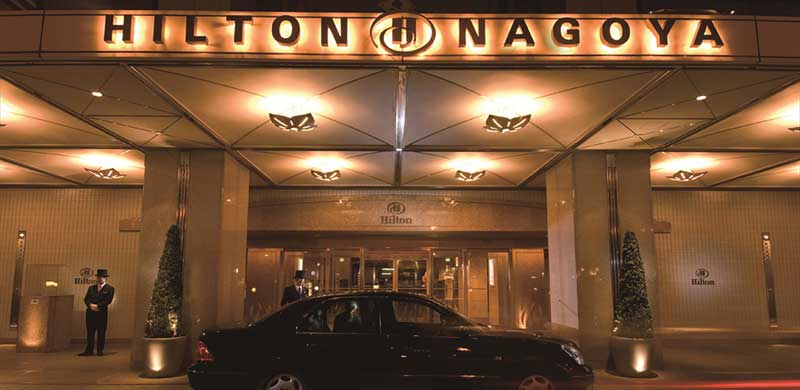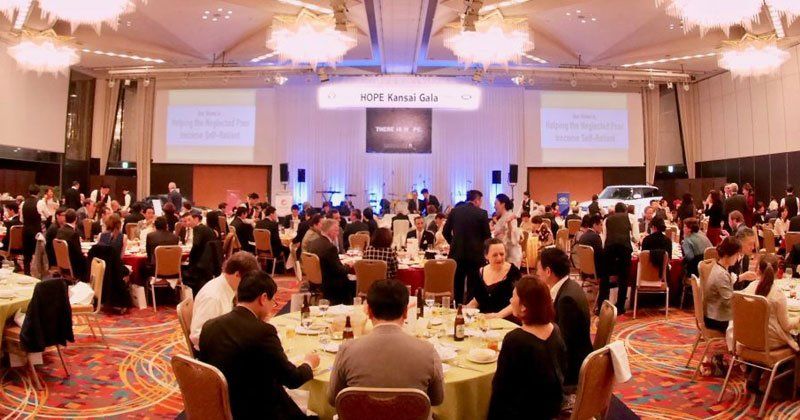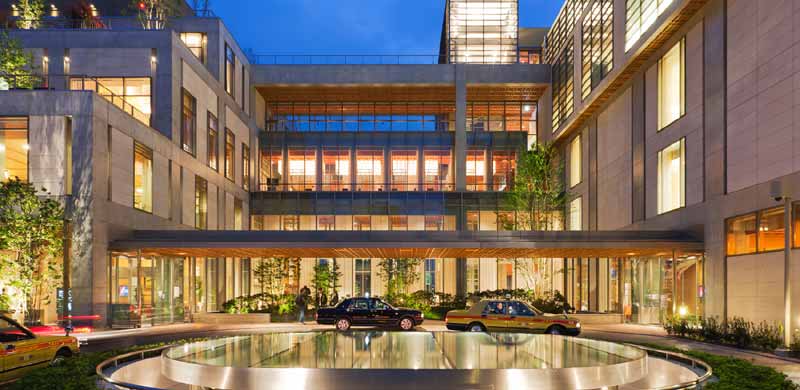Planning a Charity Dinner - a Novice's Experience
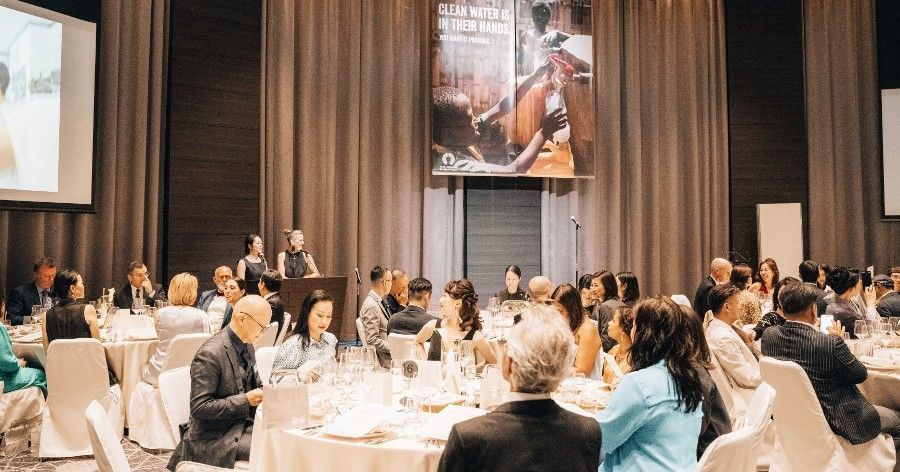
How did you get involved in HOPE's charity dinner?
It was around 2007, when I was working for USJ at the time, and decided to hold a new charity dinner.
USJ had set up a CSR department to focus on social contribution activities, and the president told me that he wanted to hold a charity dinner similar to those held in the United States and Europe.
However, there was no "Western-style charity dinner" event that could be a model for me at the time, and while I was pondering the idea, I received an invitation from HOPE for the Kansai Charity Dinner (hereinafter referred to as "the Dinner").
The first thing that surprised me was that the invitation had a Black Tie dress code. So I wore a formal dress to attend. I was intrigued by everything at my first dinner. HOPE's Animal Bank project was a previously unheard-of method of support, in which cows are loaned to Cambodian farmers to help them become economically independent. Half of the participants were foreigners.
At the auction held at the dinner, not only goods but also priceless experiential items were offered for sale, and when I saw foreigners bidding at surprisingly high prices and enjoying their participation, I was surprised at their feelings toward charity and at the same time felt a difference in their sense of donation from our Japanese counterparts. Participants enjoyed an extraordinary experience in the elegant venue, and the atmosphere of the event made them feel like "I want to support what I can do now".
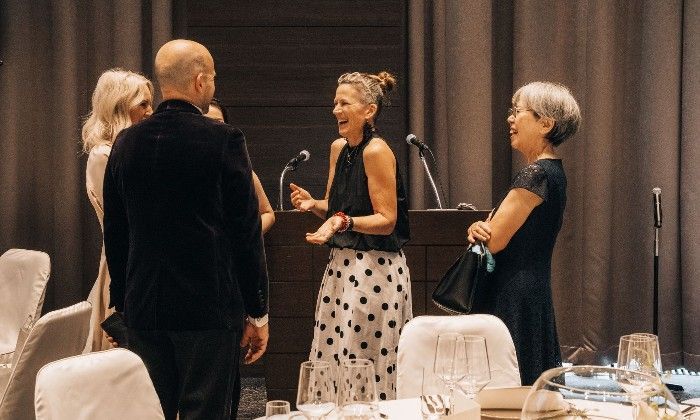
At HOPE Dinner (Ms. Haruna: far right)
What did you do to organize the USJ charity dinner?
Preparations began in earnest after attending the HOPE dinner. Our goal was to generate more than 10 million yen in revenue. We visited each of our major business partners one by one to ask for their cooperation, but at first everything was very difficult. Nowadays, people have a better understanding of charities, but at the time, some people wondered, "Will the donation be used properly"?
In response to such comments, we clarified the use of donations as "scholarships to support local high school students in Osaka Prefecture to go on to college (Osaka Prefectural Scholarship Society USJ Scholarship), donation of a mobility vehicle to an orphanage, and renovation of a playroom in a hospital for children with incurable diseases," and thoroughly increased transparency in how donations are used. We wanted to make sure that there would be no fraudulent activity at the charity event, so we researched the laws and did everything we could to prepare for the first charity dinner show in 2008. As a result, we were able to meet our revenue goal and USJ added an amount equal to the revenue as a matching gift.
The Charity Dinner Show continues to this day, and the 15th show was held in 2023.
Finally, have you noticed any differences between corporate and non-profit charity dinners?
The relationships with the participants are different. At the USJ Charity Dinner, our major business partners are table sponsors, and they recognize the significance of "working with the company to contribute to the community" and participate in the event. On the other hand, charity dinners hosted by NPOs like HOPE's require a strategy on how to attract people who are not related to the organization. I feel it's important to consider the "benefits of participation" for the Japanese, for whom the culture of charity is not as prevalent as in the West. Reports to increase the transparency of how donations are used and that better promote the organizations activities are also important. I believe that making the recipients of donations visible to participants, or "visualization," of such will help change attitudes toward donations in a positive direction.
- 1 USJ Scholarship: Scholarship funded by donations from USJ and managed under the auspices of the Osaka Prefectural Scholarship Society.

